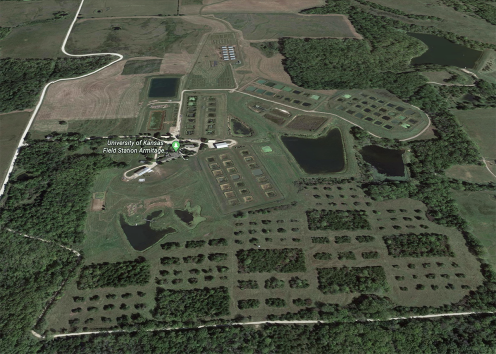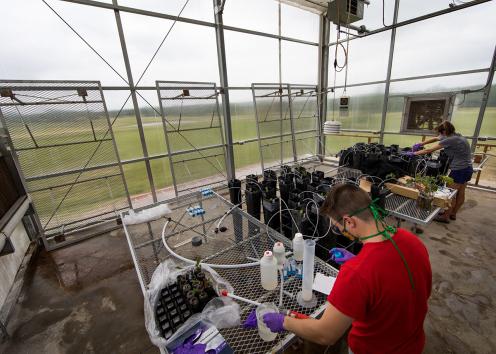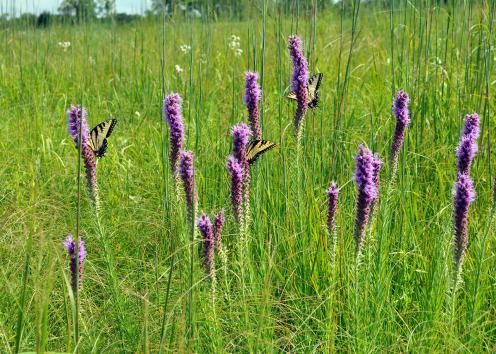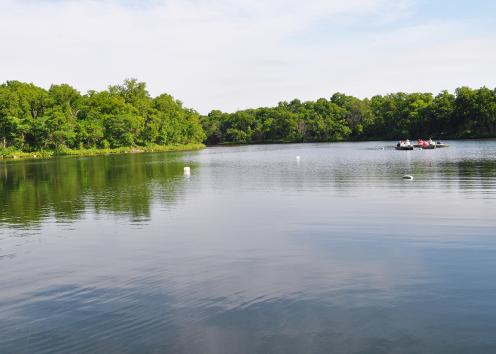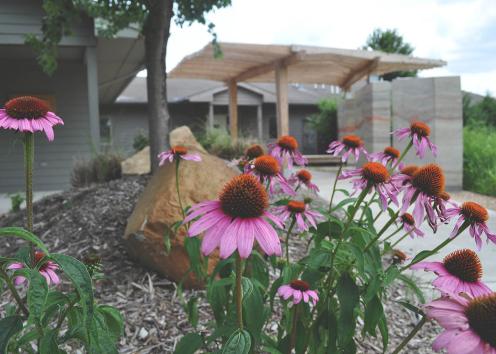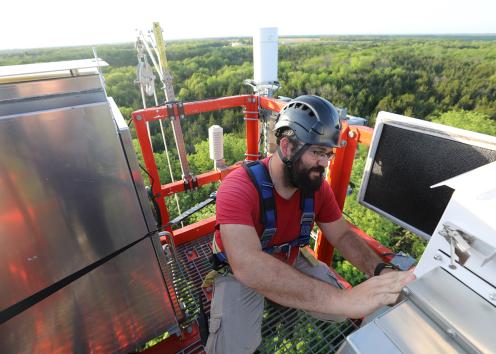Research at the Field Station

The KU Field Station welcomes researchers in the natural sciences from anywhere in the world. In addition, the Field Station is open for study in any area of the arts and sciences, humanities, fine arts and professional schools at KU and other institutions of learning. We encourage use of the Field Station for cross-disciplinary study.
Scientists working here conduct an impressive range of research in ecological and environmental science, studies of behavior, physiology, morphology, reproductive biology, pollination, genetics, predator-prey interactions, host-pathogen relationships, habitat requirements, and community and landscape ecology. Likewise, research is ongoing on the physical environment—soil, air and water—including the relationships between organisms and ecosystems with resources (nutrients and water) and pollutants.
To review the breadth of research conducted here, visit our lists of publications and research grants on the Kansas Biological Survey & Center for Ecological Research website and choose the filter for the KU Field Station along with keywords, researcher names, or dates.
Funds for research and development at the Field Station come from KU and multiple other sources. Field Station scientists are highly successful in obtaining research grants from institutions including the National Science Foundation, the Environmental Protection Agency, the U.S. Department of Agriculture, the National Aeronautics and Space Administration, the U.S. Geological Survey, Kansas agencies and the private sector.
Our field reserves

